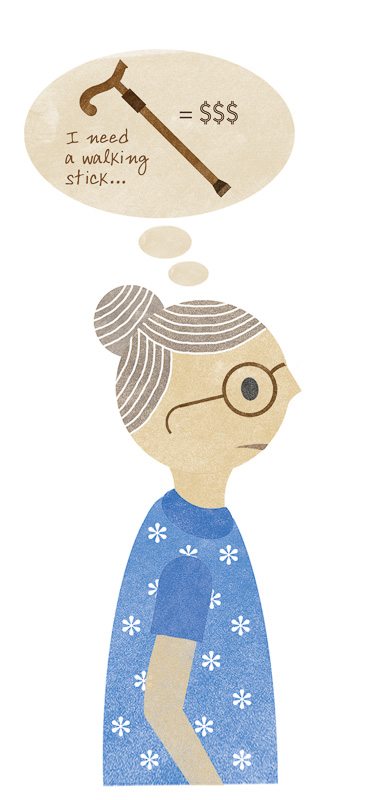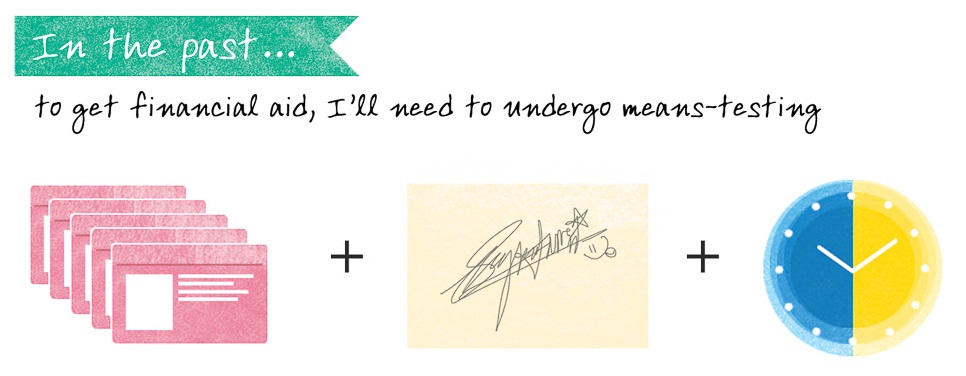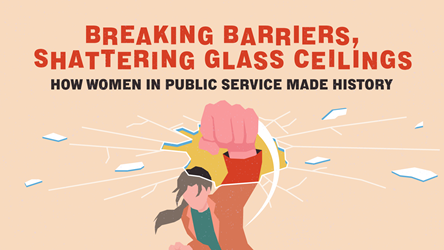Cutting Down Paperwork and Simplifying Processes for Citizens
 At various stages of our adult life – say, parenthood or during our senior years – we may face many issues, some of which can form bumps in the road.
At various stages of our adult life – say, parenthood or during our senior years – we may face many issues, some of which can form bumps in the road.
Getting over these bumps can be challenging. And when one seeks help from the government to do so, he some-times finds himself faced with administrative hoops that can prove overwhelming, even daunting.
Case in point: parents applying for financial aid for their children enrolling in child care centres were often stumped by the amount of form-filling they had to do. Some had trouble obtaining payslips to verify their income level for means-testing (a system that determines the level of subsidy one receives), and thus faced a long wait for the approval of their application.
Some older citizens went through a similarly trying time. Those who applied for subsidies to buy mobility devices had to undergo household means-testing, even for just a simple walking stick. Collating and submitting the signatures and photocopies of identity cards from every member of the household as part of means-testing was, for some, not easy.
Relieving pain
Such difficulties have not gone unnoticed by the authorities.
Thus the Smart Regulation Committee (SRC) was formed in 2005 in response to the public’s desire for simpler processes.
Currently chaired by Mr Chan Heng Kee, Permanent Secretary of the Ministry of Social and Family Development (MSF), the Committee works alongside public agencies to identify and alleviate “pain points” – any frustrating difficulties or inconveniences that inadvertently arise from well-intentioned rules and processes.

“Rules and processes exist for good reason – they help ensure that schemes are implemented according to their intent,” said Mr Kelvin Chia, an MSF officer and a member of the Committee’s Secretariat. However, they can also make it onerous for citizens who are supposed to benefit from the schemes.
“There are no perfect rules,” he said.
Revisiting rules without compromising on the purpose of the schemes, and put-ting oneself in a regular citizen’s shoes, are SRC’s guiding principles. In examining current rules and regulations, the committee, which convenes quarterly, keeps in mind the life cycle of Singapore-ans — from birth to school-going years, to adulthood and marriage, midlife, and subsequently, one’s golden years.
Simplifying processes
For a start, SRC members draw on agencies’ experiences in identifying pain points that affect different stakeholders. The committee, comprising deputy secretaries of ministries and chief executives of statutory boards, then conveys its assessment to the relevant agencies, and encourages and facilitates the necessary changes.
For instance, parents applying for means-tested childcare subsidies need no longer submit payslips with their application. The Early Childhood Development Agency (ECDA) has tied up with the Central Provident Fund (CPF) Board to simplify the application process. Now parents can just fill a one-page subsidy application form and the ECDA will derive income in-formation through CPF contributions.

The Ministry of Health has also introduced an enhanced Seniors Mobility and Enabling Fund scheme in July this year, offering monetary support for a wider range of assistive devices, including mobility aids; transport subsidies; and subsidies for medical consumables for a small group of needy seniors.
The means-testing process for assistive devices was also simplified. For instance, if the senior is staying in a 1-, 2- or 3-room Housing & Development Board (HDB) flat, means-testing is no longer required for medical devices that are $500 or less. These seniors will qualify for a 90% subsidy, making a basic wheelchair or walking stick easier to acquire.

Working across government
The committee approached the agencies that support and know these citizens well to find workable solutions to everyday is-sues. This multi-agency approach relies on the support of officers across the government, “back-end” coordination, and engaged collaboration – not to mention patience with what can be more back-and-forth discussions.
According to Mr Chia, government agencies have generally worked well together, hand in hand with the SRC. As the committee “brings pain points encountered by citizens into sharper focus at the working level”, agencies feel a stronger impetus to review current rules and processes.
One agency, for instance, could cast a fresh eye on the rules of a sister agency; by and large, agencies recognise the value in this type of partnership, he said.
In the coming months, the SRC will take a look at the needs of other citizen groups such as bereaved families, HDB dwellers, as well as those who use public sports and recreational facilities. In these cases, issues cut across various life stages, impacting young and old, and some rules could be made less burdensome.
Mr Chia acknowledged that there will be disagreements among agencies on why and what changes are needed. But what is more important is that officers gain more insights into the experiences of citizens, and have a “mindset shift” in designing rules, he said.
Which means it is still worth the effort to find ways to smooth out bumps in the road for citizens, even if the process to do so is no smooth ride.
- POSTED ON
Nov 7, 2013
- TEXT BY
Yong Shu Chiang
- ILLUSTRATION BY
Ng Shi Wei









